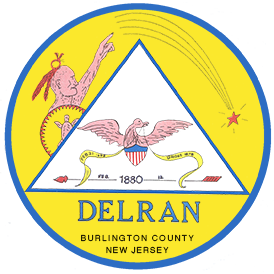Utility Assistance
Burlington County Community Action Program (BCCAP) is currently accepting and processing applications for Home Energy Assistance. There are 3 types of programs available that help both
Click here to learn more: https://www.bccap.org/home-energy-assistance/
Required Documents for All Programs-Completed Intake/Application with signature and date
- Copies of the Following:
- Valid Picture ID for Head of Household/Applicant
- Social Security cards for all members of the household
- Proof of any and all sources of income for all household members that are 18 years of age or older (if they go to school/are a student then show proof of school) (if they don’t work-submit letter verifying and documenting zero income)
- Proof of owning (deed/tax bill/mortgage statement) or renting (lease/landlord letter) property
- Current electric and/or gas bill (one bill for each utility you are applying for)
Low Income Home Energy Assistance (LIHEAP):
Heating Energy Assistance (HEA) If they are responsible for heat (gas/electric/ deliverable fuel) they will receive a
Universal Service Funds (USF) IF they are responsible for gas OR electric or gas AND electric, Processors will calculate the
Cooling Assistance- If the applicant has a medical necessity documented by medical prescription or another verification type that requires them to stay cool during the summer months, then they are able to apply for cooling and submit verifying documents from the beginning of the season Oct 1 to the end of the heating season April 30th. A supplemental check will be provided to the applicant from May-June to be able to purchase an air conditioning unit or pay towards their summer energy costs which will naturally be higher because of their medical need.
Deliverable Fuel Emergency Assistance- AVAILABLE NOW until April 30th. If an applicant heats with a deliverable fuel (propane gas, oil, kerosene, wood burning stove, etc.) they are eligible to receive (in addition to their original HEA
Gas/Electric Emergency Assistance- Any applicant that applies during the Heating Season (Oct 1- April 30th) and heats using gas or electric will be classified under protected under the Winter Termination Law created by Board of Public Utilities (BPU) which state these identified applicants/individuals shall not have THEIR SOURCE OF HEAT suspended for non payment during the time period of November 15-March 15 annually.
Guidelines: Have gross income at or below 200% of the federal poverty level (also determined by household size)
NJSHARES
New Jersey SHARES can assist with up to $700 for the heating source (natural gas) and up to $700 for electric service, or up to $700 for electrically heated homes
Guidelines :Have gross income at 201% – 400% of the federal poverty level (also determined by household size) ORApplicants 65 years of age or older, with households of one or two members, maximum household gross income is $5,833 monthly/$70,000 annually OR Any applicants receiving Federal Social Security Disability (SSD) benefits, with households of one or two members, maximum household gross income is $5,833 monthly/$70,000 annually
Click here to learn more: http://www.njshares.org/
NJPowerOn
New Jersey with up to $1,500/year in benefits to pay their utility bills
Guidelines: Have gross income at 201% – 450% of the federal poverty level (also determined by household size)
Click here to learn more: http://njpoweron.org/
